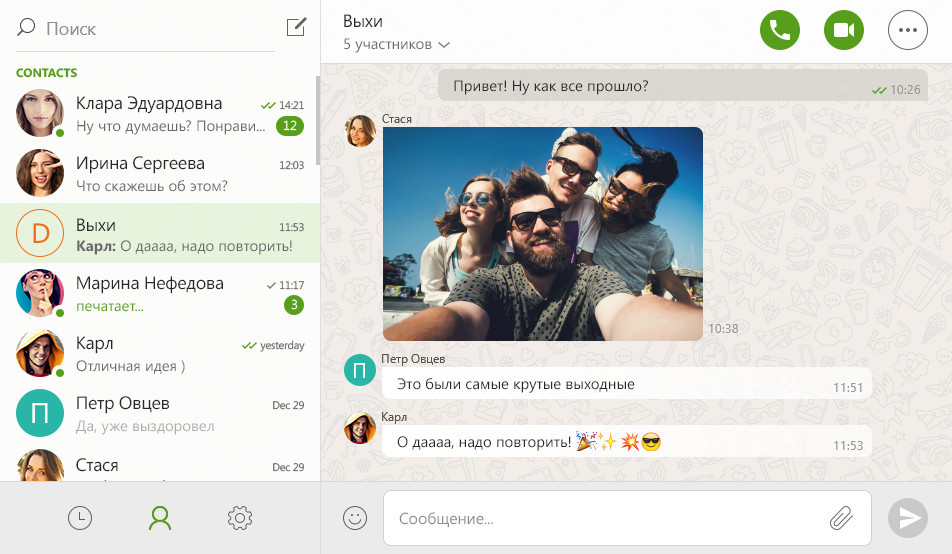New ICQ for Windows, open source and more

In November 2015, we recalled how the ICQ interface was changing . Today we released a new version for Windows, the appearance of which has been completely redesigned. ICQ has gained a minimalistic interface and has become very similar to its mobile incarnation. And besides - tadam! - We opened the source code of the application, because we used Qt cross-platform toolkit to create a new version .
The new ICQ is significantly different from the previous version. Minimum details, relative sizes of interface elements are redesigned so that the application is visually as close as possible to the mobile version. Support for Windows 10 and large screen resolutions are not forgotten. It is also possible to rotate the image during a video conference, which will be appreciated by the owners of Windows tablets and transformers. We also improved the VoIP engine, which provides higher quality calls on weak channels. The list of innovations does not end there. In the new version, the correspondence history is now synchronized, and all kinds of emoticons, troll faces, emoji and stickers are placed in a separate tab, where it is much easier to work with them. In addition, ICQ significantly accelerated, which is especially felt on accounts with a large number of friends. Application speed increased by 8 times, now ICQ starts instantly. Also, the new ICQ consumes significantly less memory.
As stated at the beginning, the new version was created using the Qt library. One of its features is the use of MOC, - Meta Object Compiler - a preliminary code processing system that significantly expands the capabilities of developers. In addition, Qt is equipped with its own graphical development environment, which allows you to create interface elements in WYSIWYG mode. The popularity of the library is very convincingly just a list of projects and companies using Qt: Autodesk Maya, Skype, VLC, Google Earth, DreamWorks, Google, HP, Lucasfilm, Panasonic, Philips, Samsung, Siemens, Volvo, Walt Disney Animation Studios and many others. Not to mention the widely known KDE desktop environment and all related applications.
Qt is distributedunder two licenses: commercial and LGPL. At the same time, Qt itself includes a number of components distributed under different versions of the same LGPL. This imposes certain conditions when developing using this library: depending on the selected license, the components used and the degree of “involvement” of Qt in your project, it may happen that you have to open the source code. That's exactly what we did: now you can examine every line of the new ICQ code available on GitHub.
An inquisitive reader will notice that since we have ported ICQ to Qt and opened the source code, will there be a version for Linux? And we say: yes, it will! In the meantime, you can try the new version for Windows, it is available on the ICQ site .
